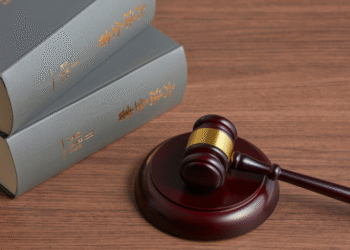Discover what Suvillions means, its origins, and real-world uses in modern language and culture with clear insights.
If you have recently come across the term Suvillions in a legal article, a policy document, or perhaps even a social discussion, you are probably asking yourself the same question I did: What does it actually mean
The first time I saw it, I actually thought it was a typo for civilians or perhaps services. But after seeing it mentioned again and again in blogs and legal think pieces, I realized it might have more depth than a simple spelling error. Out of curiosity, I decided to probe. What I discovered was a fascinating mix of language, law, and social elaboration.
So let’s explore this together and see what Suvillions might mean in a legal sense and why it could matter more than most people think.
What Is Suvillions in Legal Terms
As of today, Suvillions is not an officially defined legal term in any country’s statute books or court decisions. It does not appear in law dictionaries or case databases, at least not yet. However, based on how it is being used and discussed, several possible meanings are beginning to take shape in the legal and policy world.
Some people believe Suvillions is a modern reimagining of the word civilian, possibly used to describe citizens who exist at the intersection of the physical and digital world. Others think it could represent a type of digital legal identity, a new class of people whose rights and obligations extend into online spaces. There is also a chance it is being developed as a policy term, perhaps combining ideas of sovereignty, civic duty, and online governance.
In simple terms, Suvillions may describe the legal status of people who operate in hybrid environments where both traditional law and digital governance apply. It might sound futuristic, but many emerging legal concepts started just like this, as words that carried potential before gaining definition.
Why People Are Searching for Suvillions in Legal Contexts
Whenever a new term begins to appear in legal writing or political discussion, people naturally get curious. Search data suggests that Suvillions is being looked up more often now than before. While the volume is still small, the interest is clearly rising.
So what’s behind this curiosity. For one, the world is changing rapidly. Governments, attorneys, and experimenters are trying to understand how to manage digital rights, online sequestration, and the blurred line between a citizen’s real and virtual identity. People want to know whether Suvillions could come from a legal order, a policy frame, or indeed a movement representing a new type of citizenship.
It reminds me of when the term cyber law first started circulating. Back then, it felt like a buzzword. Today, it defines an entire legal field. Suvillions could be going through a similar early stage of recognition.
Theories About What Suvillions Might Mean in Law
There are a few interesting possibilities for how Suvillions could evolve as a legal term or principle.
1. Digital Citizenship and Virtual Identity
As more of our lives move online, the need for a recognized form of digital citizenship grows. In that sense, Suvillions might refer to people who hold rights and obligations in both physical and digital jurisdictions. Just as we are citizens of a country, we might soon be Suvillions of the internet, with protections, responsibilities, and a legal identity that carries across platforms.
Imagine having a verified legal identity that applies equally in a virtual meeting, a blockchain transaction, or a metaverse property dispute. That is the kind of environment where the concept of Suvillions could find meaning.
2. Sovereign Civilians
Another interpretation is that Suvillions could combine the ideas of sovereign and civilian. In this context, it might describe individuals who assert autonomy, privacy, and freedom from overreaching government or corporate control. Legal thinkers who discuss digital sovereignty and personal data rights may find Suvillions a fitting label for those advocating for legal self-determination in the online world.
This view aligns with ongoing debates about how important control individualities should have over their data, digital footmark, and algorithmic representation.However, it might represent the everyday person reclaiming control in a digital legal terrain dominated by large realities, If Suvillions becomes an honored conception.
3. Legal Protection for Non-Combatants in Cyber Conflict
A third and more specialized interpretation links Suvillions to international humanitarian law. Traditionally, civilians are protected under the Geneva Conventions during physical conflicts. However, with cyber warfare becoming more common, experts are now discussing the idea of protecting digital civilians or Suvillions from cyberattacks targeting essential infrastructure like hospitals, schools, and communication systems.
In that case, Suvillions could represent people whose online data or digital presence should be protected from hostile actions during cyber conflicts. It is a new angle on the old idea of protecting innocent parties, just updated for the internet age.
Is Suvillions a Legal Term, a Policy Idea, or a Conceptual Movement
Right now, Suvillions can be considered all of the above. It is not yet official legal terminology, but that is how new legal language always begins. Terms often start as ideas in academic journals, policy papers, or online discussions. Then they slowly move into legislation, case law, and eventually public understanding.
Think of how data protection officers, cryptocurrency, or digital privacy rights entered our vocabulary. They began as abstract ideas before becoming standard legal terms used in laws around the world.
If Suvillions continues to appear in scholarly articles, online debates, and perhaps early legal drafts, it may soon find its place in the evolving legal dictionary of the digital era.
My Experience Researching Suvillions as a Legal Concept
When I first started looking into Suvillions, I treated it like any emerging legal topic. I searched through academic databases, legislative archives, and law reviews to find any mention of it. At first, I found nothing concrete. Then I began to notice small references connecting Suvillions to themes like civil sovereignty and digital rights.
That was when I realized this word was still in its early formation. It reminded me of how new ideas take root. At first, only a few thinkers discuss them. Then the media picks them up. Eventually, they reach lawmakers, and before you know it, the word is part of a legal statute.
To me, Suvillions represents that exciting moment where language and law meet creativity. It is a reminder that legal evolution does not just come from courtrooms or governments but also from culture, communication, and innovation.
Why Defining New Legal Terms Like Suvillions Matters
Law thrives on precision. Every statute, regulation, and judgment depends on clear definitions. That is why terms like Suvillions are so important. When societies change faster than laws can adapt, we need new words to describe new realities.
Digital identity, artificial intelligence, and virtual property are all examples of this shift. As human activity expands into digital spaces, we need terminology to match. Suvillions could eventually describe the legal rights, duties, and protections of people navigating this new hybrid world.
For example, in data protection law, Suvillions might represent individuals whose digital information deserves legal safeguarding. In constitutional law, they might symbolize citizens asserting autonomy within virtual governance systems. In international law, Suvillions could refer to non-combatants in digital conflicts who deserve protection under evolving humanitarian frameworks.
Each of these interpretations shows how one simple word can unlock powerful legal possibilities.
FAQs About Suvillions in Legal Context
What does Suvillions mean in law?
Currently, Suvillions does not have an official legal definition. It is being explored as a potential concept that links civil rights, sovereignty, and digital citizenship.
Is Suvillions a real legal term?
Not yet. It is still emerging in discussions among researchers, digital rights advocates, and policy experts.
Who uses the word Suvillions?
Early adopters include legal scholars, policy analysts, and online communities interested in digital governance and privacy rights.
Could Suvillions become part of future law?
Yes. As digital identity and online rights become more important, lawmakers might adopt new terminology like Suvillions to describe individuals or groups within those frameworks.
Why is the term Suvillions gaining attention now?
Because of the growing intersection between technology, identity, and law. People are looking for new ways to describe citizens in digital environments where traditional legal definitions no longer fit perfectly.
My Final Thoughts on Suvillions and the Future of Law
Suvillions may seem like an enigmatic event, yet that is how many significant legal terminology originated. It, in my opinion, represents a larger trend in the legal community to adapt to the swift advancements in technology and society.
Suvillions, in my opinion, symbolises a new type of human who exists outside of both the real and virtual worlds and who merits respect, safety, and accountability in both. It may be derived from the phrase that aids in bridging the gap between the new realities of digital life and the outdated regulations created for physical society.
Therefore, Suvillions have implied meaning even though they may not yet be mentioned in official documents or court decisions. It may one day be used in a court of law, incorporated into future digital rights laws, or discussed in a law school course. Legal language develops in this way, one odd word at a time.

















